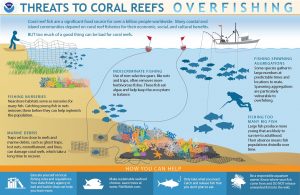One of the many problems resulting from the state of our current food system directly impacts human health. Pollan claims to offer a simple solution however it is exclusive, many socio-economic barriers render people incapable of practicing his three rules. Furthermore, the rules he lays out are trivial when situated in the modern-ecological context, post-agrarian-revolution and post-industrial-revolution. Revolutions bring with them a power structure, resulting in altered power dynamics within institutions, and since humans’ movement away from a hunter-gatherer way of life, food has become institutionalized. The entire food system operates in accordance with those in power. Rather, knowledge of the food system equates to power, and most consumers/citizens are excluded from knowledge to restrict their ability to change the system. The impact of global effects can be felt in Seattle too, where they manifest in the form of global climate change indicators.
http://apps.seattletimes.com/sea-change/video/
The greater Seattle area is known for its delicious seafood, unfortunately, the mainstream way seafood is produced, transported, and consumed is not sustainable. Over fishing, and pollution are two irresponsible practices that humans continue to use, despite far reaching impacts on valuable coral reef ecosystems, the oceans, and our entire planet. FDA and government regulation impact extends far past allowing companies to misguide consumers and inaccurately label food, as Pollan points out. The FDA is one actor whose actions are compounded to produce the current global food-system. The destruction of ecosystems, the exploitation of human labor, and the governmentalization of food all interact with regulations, or lack thereof, placed on industries and big corporations who have the biggest role to play in maintaining unsustainable practices which increase ocean-acidification, and the warming of our planet. The NOAA provides the following infographics suggesting the public take active steps towards fighting global climate change be it through what we put on our plates, or don’t, or what policy changes we decide to advocate for and demand.

NOAA. Threats to Coral Reefs. National Oceanic and Atmospheric Administration, 2015.
